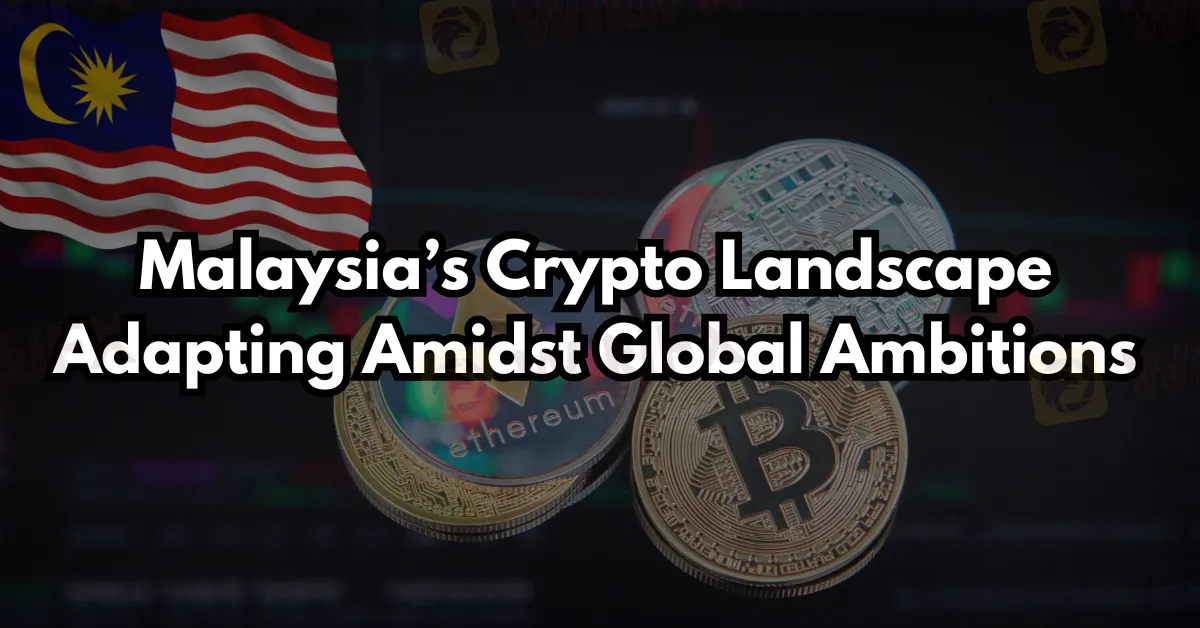简体中文
繁體中文
English
Pусский
日本語
ภาษาไทย
Tiếng Việt
Bahasa Indonesia
Español
हिन्दी
Filippiiniläinen
Français
Deutsch
Português
Türkçe
한국어
العربية
Malaysia’s Crypto Landscape: Adapting Amidst Global Ambitions
Abstract:The United States is intensifying its efforts to become a global cryptocurrency hub under President-elect Donald Trump. Experts believe this move could prompt countries, including Malaysia, to reassess their regulatory approaches toward digital assets.

The United States is intensifying its efforts to become a global cryptocurrency hub under President-elect Donald Trump. Experts believe this move could prompt countries, including Malaysia, to reassess their regulatory approaches toward digital assets. While the U.S. positions itself at the forefront of the crypto revolution, Malaysian regulators remain cautious and deliberate in navigating this rapidly evolving sector.
Stephen Innes, managing partner at SPI Asset Management, highlighted that the U.S.s push for robust crypto regulations might spark a global alignment of policies. This could lead to increased investor confidence as nations adopt consistent frameworks inspired by the U.S. He noted that while the American-led initiatives could attract institutional and retail investors, the volatile nature of cryptocurrencies demands a measured approach. Cybersecurity risks, custody challenges, and political shifts remain persistent threats, making the crypto market unpredictable.
The appointment of David Sacks as the U.S. White House lead for artificial intelligence and cryptocurrency underscores America‘s ambitions to dominate the digital asset landscape. Aaron Tang, Luno’s General Manager for Asia Pacific, pointed out that many countries, including Malaysia, look to the U.S. for regulatory guidance. However, he emphasised that Malaysia has already established progressive crypto regulations, with the Securities Commission (SC) approving digital asset exchanges as early as 2019, ahead of many advanced economies.
Despite Malaysias proactive stance, Tang mentioned that the country would not immediately replicate U.S. policies due to the unique dynamics of its regulatory environment. He noted that recent market trends have encouraged first-time investors to explore cryptocurrencies, driven by a surge in app downloads and initial investments. Tang reminded investors to consider global economic factors rather than focusing solely on U.S. policies when making financial decisions.

In Malaysia, cryptocurrency is not recognised as legal tender by Bank Negara Malaysia (BNM) and is not regulated as a payment instrument. However, both BNM and the SC closely monitor digital asset activities to ensure compliance with laws, including foreign exchange policies and anti-money laundering regulations. The SC oversees the trading, issuance, and safekeeping of digital assets and has registered six recognised market operators to manage digital asset exchanges in the country.
The SC has the authority to intervene if initial exchange offerings (IEOs) become unsustainable or fail to protect token holders. Regulations stipulate that IEO operators must maintain a minimum paid-up capital of RM5 million. These measures are part of Malaysias broader efforts to ensure market stability and investor protection.
BNM stated that Malaysias crypto market remains small compared to the domestic financial sector, with minimal interlinkages between the two. The central bank is exploring blockchain-based asset tokenisation as a key innovation in financial services. This process involves converting real-world assets like real estate or stocks into digital tokens on a blockchain, offering potential efficiency and transparency gains.
Meanwhile, Bursa Malaysia reiterated its decision to exclude cryptocurrency-related products from its exchange, prioritising investments backed by tangible assets and fundamental value.

Disclaimer:
The views in this article only represent the author's personal views, and do not constitute investment advice on this platform. This platform does not guarantee the accuracy, completeness and timeliness of the information in the article, and will not be liable for any loss caused by the use of or reliance on the information in the article.
Read more

RM62k Lost Investment Scam After Joining XRP Community Malaysia on Telegram
A 30-year-old homestay manager from Chendering, Malaysia, fell victim to an online bitcoin investment scam, losing RM62,214.59. According to Kuala Terengganu police chief ACP Azli Mohd Noor, the incident unfolded after the victim joined a Telegram group named “XRP Community Malaysia” on December 19. The group promoted bitcoin investments allegedly powered by Artificial Intelligence (AI).

Russia Turns to Bitcoin for International Trade Amid Sanctions
Russian companies are increasingly using Bitcoin and other cryptocurrencies to bypass Western sanctions and facilitate international trade. The country's Finance Minister, Anton Siluanov, confirmed that cryptocurrencies mined in Russia are now being employed for foreign transactions under an experimental framework.

Hong Kong Stablecoins Bill Boosts Crypto Investments
Hong Kong's Stablecoins Bill sets regulatory standards for crypto issuers and platforms, aiming to protect investors and strengthen the city's crypto investment appeal.

Malaysia Pioneers Zakat Payments with Cryptocurrencies
Malaysia has taken a significant step in modernising religious practices by becoming the first country to enable zakat payments through digital assets.
WikiFX Broker
Latest News
Why is there so much exposure against PrimeX Capital?
Russia to Fully Ban Crypto Mining in 10 Regions Starting January 1, 2025
Two Californians Indicted for $22 Million Crypto and NFT Fraud
Macro Markets: Is It Worth Your Investment?
WikiFX Review: Is Ultima Markets Legit?
Colorado Duo Accused of $8M Investment Fraud Scheme
What Impact Does Japan’s Positive Output Gap Have on the Yen?
RM62k Lost Investment Scam After Joining XRP Community Malaysia on Telegram
Victims of Financial Fraud in France Suffer Annual Losses of at Least €500 Million
SEC Warns on Advance Fee Loan Scams in the Philippines
Currency Calculator


